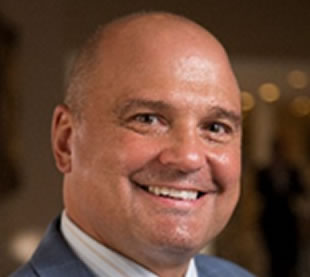
Near Retirees, Look Beyond the Markets to Secure Your Legacy
During these uncertain times, it’s easy to get caught up in the market volatility news coverage. While we know that we should look beyond the markets, it can be hard to imagine an alternative.
Near retirees, your alternative is to look inward and assess not only your current financial status but also your future financial aspirations. To help you achieve your retirement income goals and better secure your legacy, here are my top five items that near retirees need to learn and know about themselves.
Understand Your Income and Expenses in the Different Phases of Retirement
If you are contemplating retirement or planning the next phase of your life, the first thing you need to do is to figure out what your monthly cash flow needs will be during three very distinct phases of your life: now while still working full-time, later during any semi-retirement period, and the full retirement phase.
That semi-retirement phase can pose a planning challenge for a lot of people. Semi-retirement is a period when you accept a lighter workload either in your current career or in an altogether different career that is a long-time hobby or passion. In these reduced workload situations, the income can be uncertain, making it even more important to estimate your future expenses as accurately as possible. You may need to reduce your expenses to delay accessing your retirement savings, so you don’t run out of money while you are still alive.
Forecast Your Potential Medical Costs and Develop a Plan to Meet Them
According to AARP, many seniors simply underestimate the amount of income they will need in retirement. They often assume that their lifestyle will shrink more than it actually does, and they underestimate new costs such as medical care and prescription drugs. For example, the average number of prescription drugs a person 50 years or older takes is four. Many people over 50 can take up to 10 or more medications. Add a serious illness, like diabetes, cancer or heart problems, and the costs can range in the thousands of dollars per month for medication and treatments.
I encourage you to take the time to accurately forecast these costs and work them into your projected retirement expenses. It’s also important to note that if you do not have long-term care insurance, you’ll need to include the price of at-home care in your projected expenses, which can skyrocket into the thousands each month should a major health issue arise.
Know Your Social Security Benefits and Determine Potential Pension Benefits
The Social Security Administration will help you determine your future benefits. Just log on to http://www.ssa.gov/myaccount/ and follow the instructions to see your benefit amounts at age 62 and at full retirement age, which ranges from 65 to 67 depending on your date of birth. You will also see that there is an even higher benefit if you can afford to put off your start date and that the amount you receive will increase by a cost-of-living formula each year to keep pace with inflation.
I’m often asked what is the best age to start taking social security benefits. My answer: first consider your overall health, family history, and lifestyle— if you think you are going to live a very long life, and you can afford to delay receiving benefits, then waiting may be beneficial. Other factors, such as your marital status, can impact your decision, so I encourage you to call a social security office to consult on all your options.
Explore Adding Reliable Sources of Income
As you approach retirement and want to reduce uncertainties, now might be a good time to carefully consider adding more income-oriented investments such as bonds to your asset allocation. For this period of your life when you are relying on your accumulated assets to pay for your expenses, it might make sense to have a portion of those expenses paid from investments that have historically exhibited lower volatility. Despite their lower historical volatility , it is important to note that even bonds can decline in value as a result of a variety of factors including changes in interest rates, credit quality, the economy, and/or political or company specific issues.
Overall, it’s comforting for many middle-class retirees to have a portion of their expenses covered by social security, and reliable sources like pensions. This way, if the stock market corrects or even collapses, you’ll have some level of stability in your income. Staying calm and avoiding emotional responses to market declines is important at any age but perhaps even more so as you age and you are more dependent on your investments to pay your bills.
Visualize What You Want Your Legacy to Be
If you are fortunate enough to have some assets and loved ones who would benefit from some of your hard earned wealth, make a plan for who, how, and when the money will be received. Moreover, if you have any excess, making gifts during your life can provide you with more inherent joy than leaving it in your will. Now may be a good time to start visualizing what you want for your future and the future of the people around you.
Mark Avallone, MBA, CFP®, CRPS®. www.PotomacWealth.com
Securities and Investment Advisory Services offered through H.Beck, Inc., Member FINRA/SIPC. 6600 Rockledge Drive, 6th Floor, Bethesda, MD 20817 301.468.0100. Potomac Wealth Advisors, LLC is not affiliated with H.Beck, Inc.
This material represents an assessment of the market environment at a specific point in time and is not intended to be a forecast of future events, or a guarantee of future results. This information should not be relied upon by the reader as research or investment advice regarding any funds or stocks in particular, nor should it be construed as a recommendation to purchase or sell a security. Past performance is no guarantee of future results. Investments will fluctuate and when redeemed may be worth more or less than when originally invested. Diversification and asset allocation do not guarantee against loss. They are methods used to manage risk.
* Opinions expressed are subject to change without notice and are not intended as investment advice or to predict future performance.
*The economic forecasts set forth in the presentation may not develop as predicted and there can be no guarantee that strategies promoted will be successful.
* Consult your financial professional before making any investment decision.



Engage us on Facebook
Follow us on Twitter
Tweets by @mymcmedia